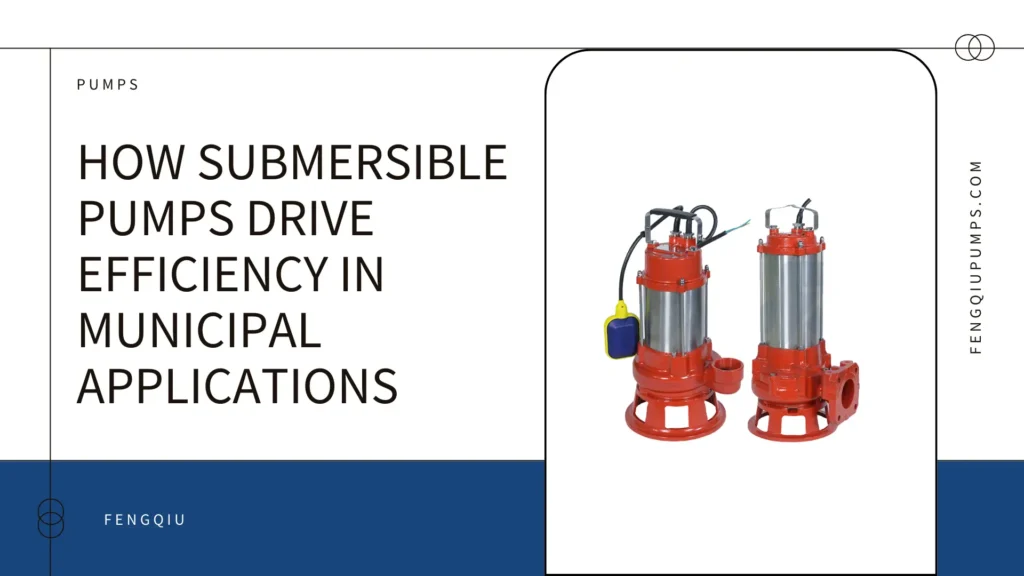Submersible pumps are devices designed to perform operations while submerged in the fluid to pump.
These pumps differ from conventional ones in that they do not suck on the medium to move it, but instead push the medium to surface; hence, they are said to be very efficient.
Municipal systems form a complex infrastructure that involves water supply systems, wastewater disposal, and stormwater drainage systems.
They require powerful pumping facilities in order to be composed. Submersible pumps are part of a typical pumping network that are funneled into the groundwater flow of water and wastes for communities.
This article will educate prospective customers on the various benefits and applications of submersible pumps in a municipal setting.
The objective is to provide departments and municipalities with valuable information that can have an impact on their decisions with respect to the effectiveness, reliability, and versatility of these pumps as water management solutions.
Key Features of Submersible Pumps in Municipal Applications
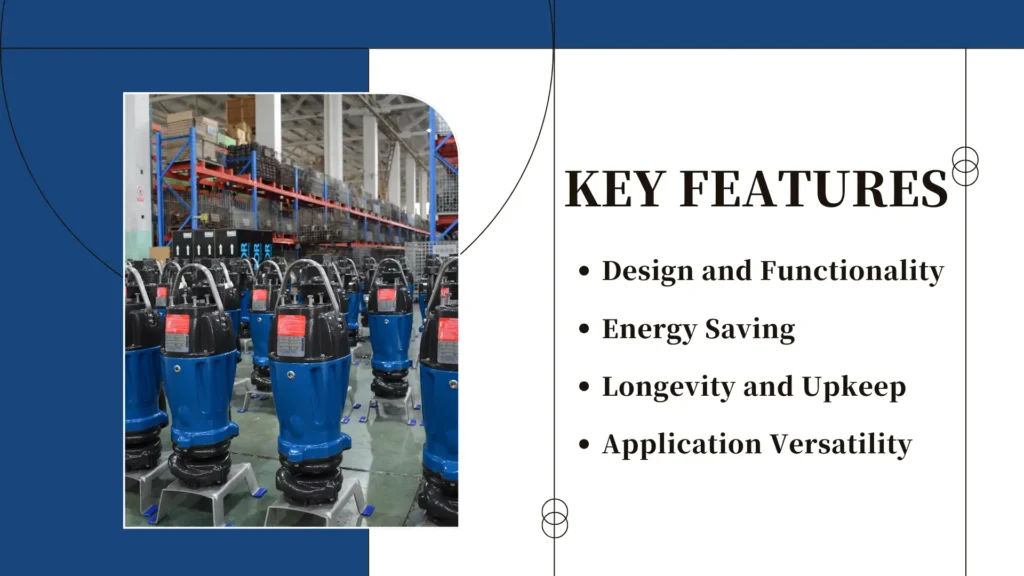
Design and Functionality
These specific pumps have been designed for underwater operation.
Hence, the special type of design reduces additional infrastructure such as long piping systems and can be devoted typically to the municipal applications.
These features really save space and are easy to install in the narrow parts or areas where difficulty may occur, hence improving the operation ergonomics in urban areas.
Energy Saving
Energy saving is very high in this submersible pump.
Because usually, pumps save energy in the never-operating range so they are reduced from high to low cost.
They are meant for energy usage at optimum levels, and it in turn gives more savings to the municipal operational costs.
Since less energy is consumed for pumping compared to conventional pumping units, it helps to reduce electricity bills and also the footprint concerning greenhouse emissions, thus supporting sustainability goals in municipal water management.
Longevity and Upkeep
Submersible pumps are built from materials of the highest quality, able to withstand indeed severe municipal conditions, involving corrosives and high fluctuations of temperature.
They are made so that they will require very little maintenance and hence lower lifetime operating costs for municipalities.
All that these pumps require are such regular checks to maximize their lifespan, remain in good condition, and perform better.
Application Versatility
Versatile is one of the features that make submersible pumps very attractive for municipal applications.
Indeed, these pumps can be used in many situations, including groundwater extraction, sewage transport, and irrigation systems.
This means they are equipped for all possible distinctive municipal uses-from adequate supply of potable water to efficient management of stormwater runoff, hence tackling a dissimilar set of problems which urban water management systems have to face.
Applications in Water Supply
Groundwater Harvesting
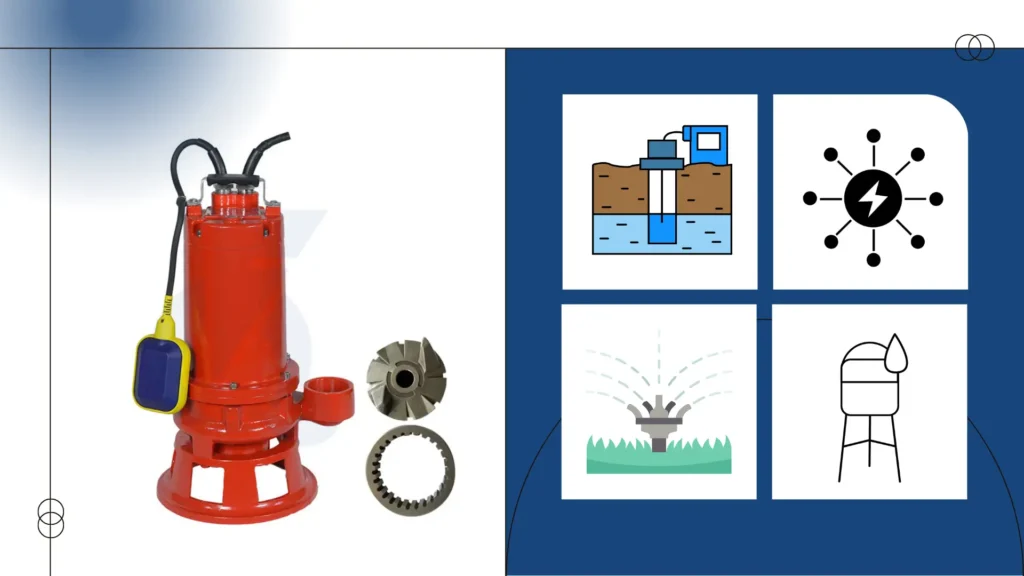
By means of submersible pumps, groundwater can be extracted in an efficient manner so that such strata source water which could be supplied to municipalities externally.
These pumps can further tap aquifers that are found very deep underground to supply fairly continuous clean water in the distribution system of the municipalities.
Distribution Systems
This water is extracted and then pumped through the municipal pipelines, thanks to the efficiency of submersible pumps.
This efficiency maintains adequate pressure with flow rates in such a way that the overall efficiency of the water delivery systems is enhanced.
Irrigation Systems
Along with groundwater, the other works in a municipality are to maintain the municipal irrigation systems with submersible pumps, benefitting the parks, sports fields, and open public gardens, wherein, all these green spaces positively flourish with conservation of water resources.
Contingency Water Supply
These pumps provide a ready answer for emergency needs in cases of natural calamities such as floods or droughts.
Their workability under completely adverse conditions makes them indeed a critical component in response to any disaster.
Applications in Wastewater Management
Sewage Lifting Stations
Basically, submersible pumps are used in sewage lifting stations to lift wastewater to a treatment plant.
These pumps were specially developed for large quantities of effluents, thus preventing backups and running smoothly.
Management of Stormwater
The removal of excess water due to storm events is very important in a city and very useful in submersible pumps.
When it rains heavily, these pumps remove water fast from the place of flooding and allow the infrastructure to continue serving the public safely.
Plant Operations for Treatment
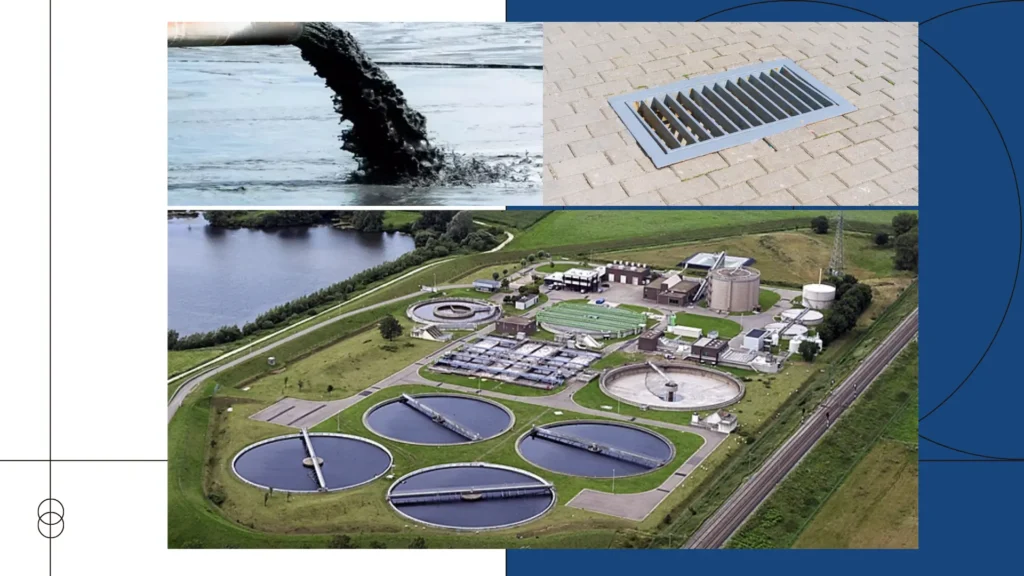
Treatment plants use submerged pumps for transporting water during various water treatment processes these pumps are part of the flow of wastewater to be treated and discharged back to the environment.
Odor Control
The submersible pumps are used for odor control in municipal facilities. Good management of wastewater by the municipal facilities leads to the reduction of odor to make it better for both workers and the community that surrounds the facility.
Advantages Over Traditional Pumps
Space Efficiency
Submersible pumps, as distinct from surface pumps, are space efficient.
They occupy a smaller extent of physical space, thereby qualifying to be used in those municipalities that are badly constrained in the available footprint for infrastructure development.
Reduced Noise Levels
Their design contributes to noise pollution minimization, and this makes submersible pumps also suitable for installation in residential areas.
The effect is a calm enhancement in the relationship of the neighborhood because disturbances expected to arise from conventional systems have largely lessened.
Less Cost of Installation
Because of small-sized units and lesser piping lengths, submersible pumps involve very low installation costs and are indeed important savings for an already limited-budget municipality.
Enhanced Safety Features
Safety is one of the prime priorities for municipal operations.
Safety is an important part of submersible pumps reducing the chance of falls and electrical hazard accidents known to happen with traditional pumps.
Cost-Effectiveness
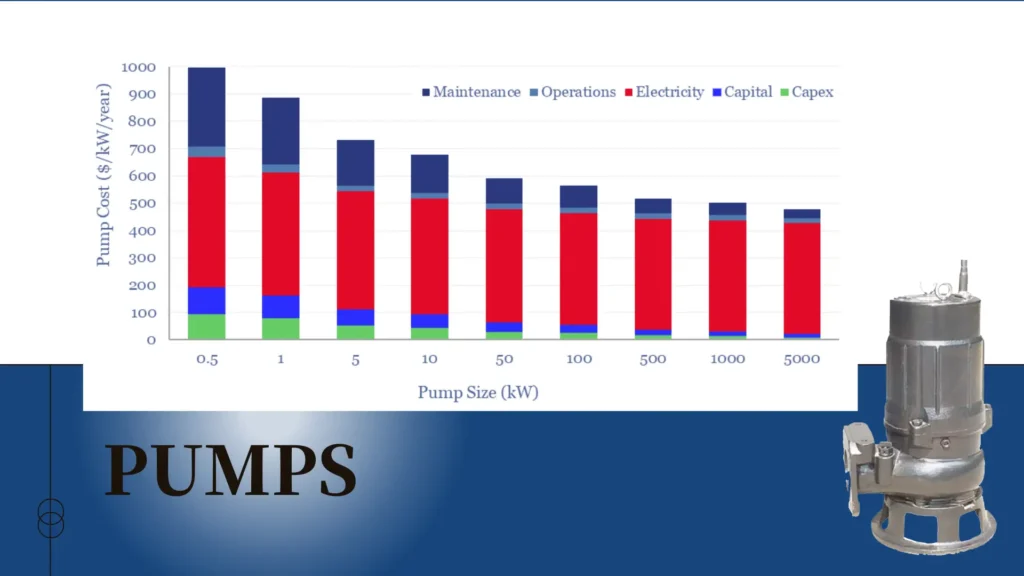
For Long Term Economy
Saving money in the long run would make investments in submersible pumps worth it.
Their efficient operation saves energy usage and cost, as well as maintenance and repairs.
Return on Investment
Submersible pumps usually yield an immediate return on investment for municipalities.
Since these pumps are efficient and reliable, the initial installation costs are almost instantly compensated by decreased costs associated with operation and service delivery.
Budget Friendly
Municipalities, schools, or other small government organizations can afford submersible pumps as there are several models available because of the different budget allocations.
Yet, it brings advanced pumping technology to smaller municipalities.
Financial Subsidies
Many governments provide financial incentives to municipalities that switch to energy-efficient pumping.
Those subsidizations make submersible pumps very attractive for municipalities: to increase investments even further before they seem to reach critical mass.
Also Read:
Cost-Benefit Analysis of Submersible Pumps in Municipal Systems
Environmental Impact
Energy Consumption
Reduced power consumption compared to conventional pumps, which results in reduced carbon emissions.
Energy cuts, therefore, bring municipal efforts closer to combating climate change.
Water Conservation
Submersible pumps promote sustainable water management practices by optimizing their use for extraction and distribution of water.
This will be essential in conserving life-giving water resources at municipality levels.
Pollution Control
The installation of submersible pumps has greatly helped in the proper management of waste waters so that pollution levels decrease in the coastal water bodies.
Municipalities can protect their ecosystems by treating and discharging waste into their water bodies effectively.
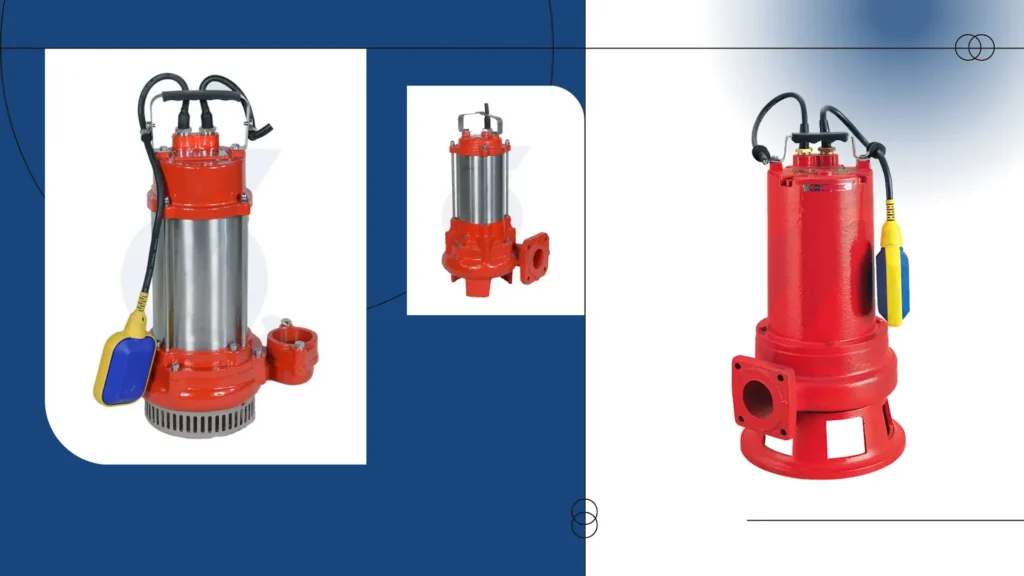
Regulatory Compliance
Pumps which are designed within energy-efficient modes can assist municipalities in conformance to the respective environmental regulations and standards.
This will save the municipalities from any penalties while improving their reputation as an environmentally responsible municipality.
And More:
Environmental Impacts of Submersible Pumps in Municipal Water Management
Choosing the Right Submersible Pump in Municipal Applications
Identifying Their Needs
Municipalities should perform detailed needs assessments for the subject before they seek to select a submersible pump.
Those vary from the flow rates and pressure levels to the specific application-be it groundwater extraction, sewage transfer, or stormwater drainage-with these clearly defined parameters, municipalities can make decisions in line with their operational needs.
Experts in the Field
For municipalities seeking the optimal solutions for their pumping needs, consulting pump professionals is necessary.
They can provide good insight into the latest technologies, performance specifications, and applicability of the pump models they have.
In this way, municipalities can choose pumps that correspond most perfectly to their operating needs and budgetary issues.
Future Expansion in Mind
Municipalities should always consider the possibility of future growth or changes in demand when considering submersible pumps.
Investing in pumps that are capable of being scalable makes it possible for flexibility and adaptation to occur as the needs of the community evolve.
This foresight could, in the long run, save municipalities time and money in the form of expensive replacements and upgrades as demand increases.
Maintenance and Support
For municipal applications, finding a dependable vendor that has all the services, including maintenance and support, is extremely crucial for long-term satisfaction with submersible pumps.
Regular maintenance checks and troubleshooting services together with ongoing support ensure that any issue can be addressed quickly.
This proactive approach keeps municipal systems running smoothly, reduces downtime and enhances operational efficiency overall.
And More:
Comparative Analysis of Pump Types for Municipal Applications
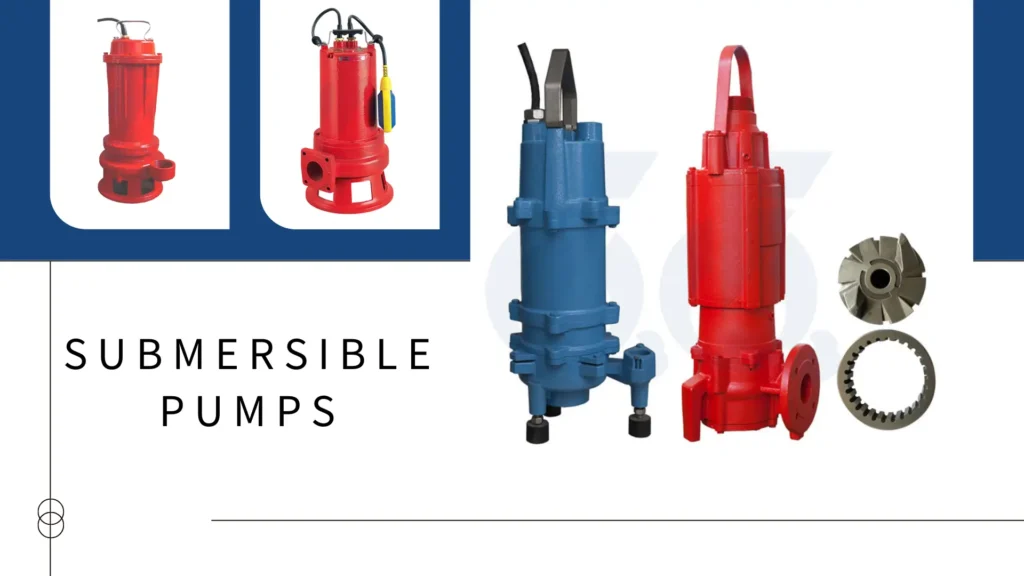
Conclusion
Such advantages are in efficiency, durability, and versatility, which suffice to explain their use in municipal applications.
The use of these pumps in diverse environments further accounts for their extensive sought after.
By all means recommend to municipalities investing in submersible pumps for their water management systems.
This keeps the future for submersible pumps bright because development continues for much better efficiency and sustainability, thus further enhancing the idea’s value to municipalities.
Innovative solutions must be embraced by municipalities for effective and reliable water management for their citizens.
Investment-wise by means of submersible pumps, such investment will give room for local governing entities to better their service delivery with the added bagging of environmental benefits.

